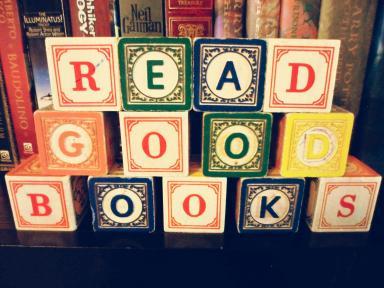“[A] children’s story which is enjoyed only by children is a bad children’s story. The good ones last. A waltz which you can like only when you are waltzing is a bad waltz.”
-C.S. Lewis, “On Three Ways of Writing for Children”
Many have (quite rightly) criticized Lynn Shepherd’s bombastic recommendation that J.K. Rowling stop writing books so as to “give other writers, and other writing, room to breathe.” With several hundred comments on her article (and several dozen new one-star reviews on her Amazon shop pages), Shepherd’s wearisome plea for Rowling’s retirement has been lambasted for both its loquacious pretentiousness (*cough cough*) and its myopic perspective on the publishing world. Much like the third grader who wants to play with her 17-year-old sister’s friends, Shepherd’s comments come off as whiny attempts to demand something undeserved – space on a bookstore shelf that has yet to be earned. And the petty move to shield herself behind “the good of the community” has fooled no one.

But the worst of it seems to have gone unnoticed. Many respondents flew through this section:
“I didn’t much mind Rowling when she was Pottering about. I’ve never read a word (or seen a minute) so I can’t comment on whether the books were good, bad or indifferent. I did think it a shame that adults were reading them (rather than just reading them to their children, which is another thing altogether), mainly because there’s so many other books out there that are surely more stimulating for grown-up minds.”
and attacked both her patronizing tone as well as her boldness to criticize a book without reading it (which, given the remarkably obscure HP reference in her article, may not be entirely honest). Many jumped to the fair defense of the quality of the Harry Potter series, arguing for its timelessness and profundity.
But no one has mentioned Shepherd’s most insidious error: the notion that so-called “children’s literature” is somehow less worthy of one’s time than that written “for adults.”
C.S. Lewis addressed this conceit in his 1952 essay “On Three Ways for Writing for Children,” saying
Critics who treat adult as a term of approval, instead of as a merely descriptive term, cannot be adult themselves. To be concerned about being grown up, to admire the grown up because it is grown up, to blush at the suspicion of being childish; these things are the marks of childhood and adolescence. And in childhood and adolescence they are, in moderation, healthy symptoms. Young things ought to want to grow. But to carry on into middle life or even into early manhood this concern about being adult is a mark of really arrested development. When I was ten, I read fairy tales in secret and would have been ashamed if I had been found doing so. Now that I am fifty I read them openly. When I became a man I put away childish things, including the fear of childishness and the desire to be very grown up.
And this was a common theme for Lewis, for he sincerely believed that the relationship between author and reader not only shouldn’t, but couldn’t expect to see any realistic limitations or censorship. In an earlier essay published in 1947 called “On Stories,” he politely ridiculed the arrogant delusion that one’s literary tastes should change as one ages:
Courtesy of: MessMakesFood
“It is usual to speak in a playfully apologetic tone about one’s adult enjoyment of what are called ‘children’s books’. I think the convention a silly one. No book is really worth reading at the age of ten which is not equally (and often far more) worth reading at the age of fifty–except, of course, books of information. The only imaginative works we ought to grow out of are those which it would have been better not to have read at all. A mature palate will probably not much care for créme de menthe: but it ought still to enjoy bread and butter and honey.”
Still, this is an attitude into which many are prone to fall. A recent online “listicle” offered twenty-two “adult” book suggestions based on the “children’s” books that a reader once loved as a kid. For example, if you enjoyed Brian Jacques’ Redwall, then you should try George R.R. Martin’s A Game of Thrones; for-children-Norton-Justers’-The-Phantom-Tollbooth means that you might like for-adult-Neil-Gaiman’s-Stardust. Setting aside the superficial reasoning behind the article (liking The Hobbit leads you to Chabon’s Gentlemen of the Road primarily because the characters in each book have adventures while doing a lot of walking), the reinforcement of child/adult literature dichotomy is uninspiring.
Not to mention wrong on its own terms.
Consider the fourth recommendation on the list: based on a childhood love of – that’s right – Harry Potter, you apparently might like Lev Grossman’s The Magicians since it is filled with magic “more tempered by reality” which means, according to the listicle, tedious bureaucracy and disillusionment. The beautiful ability of a fantasy story to transport the reader into another world, rescuing him or her from the droll and humdrum of daily existence for a time – what Tolkien called ‘Escape’ in his magisterial essay “On Fairy-Stories” – is all but forgotten. In Tolkien’s words:
“…Escape is evidently as a rule very practical, and may even be heroic. In real life it is difficult to blame it, unless it fails; in criticism it would seem to be the worse the better it succeeds. Evidently we are faced by a misuse of words, and also by a confusion of thought. What should a man be scorned, if, finding himself in prison, he tries to get out and go home? Or if, when he cannot do so, he thinks and talks about other topics than jailers and prison walls?”
But according to the Grossman recommendation, I should like the book all the more for precisely the opposite reason: it shall return to me in my leisure time all that mundanity which I typically seek to Escape. Maturity apparently equals futility.
I think I’d rather go read The Hobbit – or perhaps even Harry Potter – again. My desire for their otherworldliness is something I could only lose if I were to sacrifice part of myself in the process; as Lewis said, “a tree grows because it adds rings: a train doesn’t grow by leaving one station behind and puffing onto the next.”
And Lynn Shepherd will be more than welcome to join me in my return to Hogwarts. To someone honestly complaining about a stifling atmosphere, I can only recommend a journey up into higher country. To stand on the shoulders of giants offers fresh air galore.
To find the essays quoted here, I highly recommend the following two collections:
- of C.S. Lewis’ work: On Stories: And Other Essays on Literature
- of J.R.R. Tolkien’s work: Tree and Leaf: Including “Mythopoeia”

